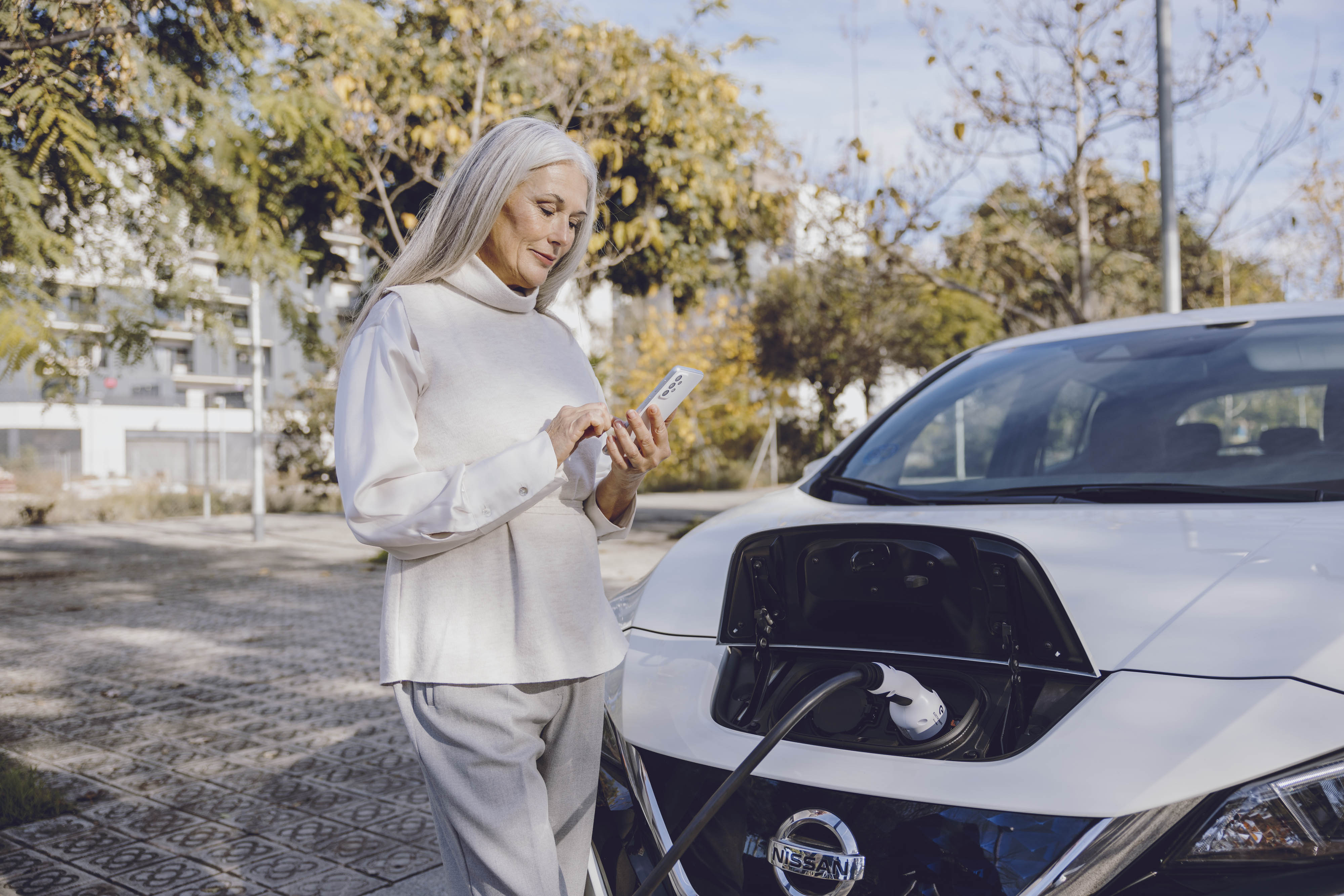The automotive industry is undergoing a major transformation, mainly driven by the growing adoption of electric vehicles (EVs). Although the EV market initially grew more slowly than expected, it has grown rapidly in recent years. Electric vehicles have not only proved to be an effective solution for reducing carbon emissions, they are also becoming increasingly competitive in terms of performance and total cost of ownership. Government policies aimed at reducing emissions and promoting sustainable mobility are playing a key role in accelerating the adoption of electric vehicles.
Used electric vehicle market
One of the most significant signs of growth in the electric vehicle sector is the increased interest in the used vehicle market. The arrival of used electric vehicles on the market reflects not only increasing sales of new models, but also the maturing of the life cycle of these vehicles. With more and more electric vehicles entering the used market, we're seeing a shift in consumer behavior, as they increasingly consider buying a used electric vehicle rather than a new one.
Market-specific challenges and opportunities
Despite the growing interest in used electric vehicles, this sector faces several challenges. One of the main ones is the perception of residual value, which can be influenced by factors such as battery life and the availability of recharging infrastructure. In addition, EV technology is evolving rapidly, which could lead to rapid obsolescence of older models. However, important opportunities are also emerging. For example, the possibility of buying electric vehicles at more affordable prices than new models is becoming increasingly apparent as market availability increases. This trend is also supported by data from Cox Automotive, which indicates a 32% year-on-year increase in used EV sales in the first quarter of 2023. In addition, the growing availability of pre-owned products is a key driver of increased volumes, with rapid growth expected in future product availability. The growing demand for used electric vehicles offers consumers the opportunity to adopt more sustainable technologies at more affordable prices, thus contributing to the overall reduction in carbon emissions.

Analysis of a small market
The market for used electric vehicles is growing steadily, with an increase in the number of ownership transfers and growing consumer interest. This trend goes hand in hand with increasing sales of new electric vehicles, indicating growing acceptance and demand for this technology. However, there are significant differences in adoption rates and consumer preferences from country to country, with some markets experiencing higher EV penetration than others.
The used electric vehicle market has experienced significant growth in recent years, fuelled by a number of key factors that distinguish it from the new vehicle market. This phenomenon is best illustrated by statistical data showing a growing trend in the purchase and sale of used electric vehicles, highlighting ever-increasing demand and the growing availability of offers on the market.
Used vs. new cars

According to recent analyses by specialist automotive institutes, the market for used electric vehicles has been growing steadily, with an above-average annual growth rate compared with conventional vehicles. Sales data and financial reports indicate a significant increase in transactions in the used electric vehicle sector, with a 15% rise in sales volume over the past year. This can also be explained by the fact that, three years after purchase, used electric cars are worth 41% less.
This increase can be attributed to a number of factors, including the growing popularity of electric models on the primary market, increased consumer environmental awareness and government incentives for the adoption of zero-emission vehicles. In addition, the used electric vehicle market is in a unique position, offering consumers the opportunity to access electric vehicles at a more affordable price than new models.
The used electric vehicle market presents some significant differences from the new vehicle market. For example, used electric vehicles may offer better value for money than new models, but may also present additional challenges related to maintenance and battery technology. However, with the right balance between price and performance, used electric vehicles remain a viable option for consumers interested in sustainable mobility.
Buyers and sellers
Buyers of used electric vehicles have a variety of motivations, including the desire to reduce environmental impact, save on running costs and benefit from the tax incentives offered for the purchase of zero-emission vehicles. On the other hand, sellers of used electric vehicles often attempt to recoup the initial investment in the vehicle by exploiting the growing demand for used electric models.
On the one hand, the purchase of a used electric vehicle offers buyers the opportunity to access cutting-edge technology at a more affordable price, enabling them to reduce their impact on the environment and save on operating costs. On the other hand, sellers can capitalize on the growing demand for used electric vehicles, achieving a return on investment and contributing to the spread of zero-emission vehicles on the road.

Market trends
EV (electric vehicle) trends include models from different brands such as Tesla, Volkswagen, Nissan and Renault. These vehicles are often sought-after for their reliability, performance and range. However, price trends can vary according to model and local market, with some vehicles retaining a better residual value than others.
The future of electric vehicles: the second life of batteries
The second life of batteries is an emerging trend in the used electric vehicle sector. EV batteries, even when they can no longer be used in vehicles, can still be used to store electricity for stationary applications, such as home storage systems or grid support. This potential reuse of batteries could help extend the life cycle of EVs and reduce the overall environmental impact of EV technology.
Impact of new technologies on the used electric vehicle market

The introduction of new technologies, such as solid-state batteries and autonomous vehicles, could have a significant impact on the used electric vehicle market. Solid-state batteries, for example, could improve range and battery life, making electric vehicles even more attractive to consumers. At the same time, the adoption of autonomous vehicles could radically change the way vehicles are used and owned, which would also affect the second-hand market.
The role of online platforms in the sale of used electric vehicles
Online platforms are playing an increasingly important role in the sale of used electric vehicles. They offer a wide range of used electric vehicles from different sellers, enabling consumers to compare prices, features and conditions quickly and conveniently. What's more, many of these platforms offer evaluation tools and certifications to guarantee the quality and reliability of the vehicles offered for sale.
Tips for buying or selling a used electric vehicle
For buyers interested in acquiring a used electric vehicle, it's important to carry out thorough research into the vehicle's features, maintenance history and battery condition. It is also advisable to buy from reputable sellers and to use specialized online platforms to facilitate the search and purchase process. On the other hand, sellers should take care to provide accurate and detailed information about their used electric vehicles, and offer warranties or certifications wherever possible to increase the confidence of potential buyers.
In conclusion
In conclusion, we can say that buying electric vehicles (used or otherwise) reduces the impact on the environment and provides a totally different driving experience.
The market for used electric cars is growing fast and, thanks to new technologies, will continue to improve.









.png)
%20(1).png)




.png)


